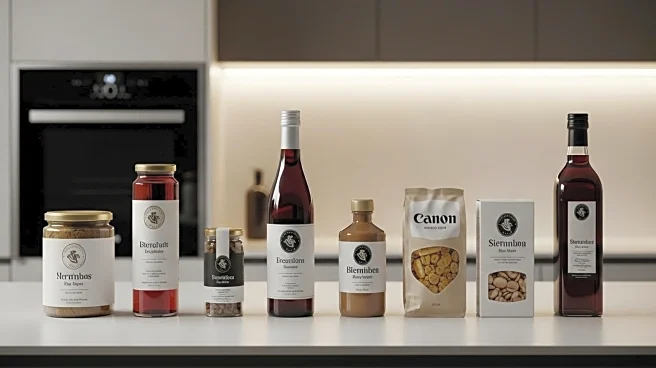What is the story about?
What's Happening?
Private label food products are increasingly capturing market share from branded counterparts, driven by consumer demand for affordability during ongoing inflation. Since 2022, retailer own-label brands have gained popularity as consumers seek cost-effective alternatives. The quality of private label products has improved, challenging the perception that branded products offer superior value. Industry experts suggest that premium private label offerings are becoming more attractive, providing similar quality at lower prices compared to branded options.
Why It's Important?
The shift towards private label foods reflects changing consumer priorities, emphasizing value and affordability. This trend poses challenges for branded food manufacturers, who may struggle to justify higher prices amid improved private label quality. The growing preference for private label products could lead to significant shifts in the food industry, affecting brand strategies and market dynamics. Retailers benefit from higher margins on private label goods, potentially reshaping grocery landscapes and influencing consumer habits.
Beyond the Headlines
The rise of private label foods may prompt branded manufacturers to innovate and adjust pricing strategies to maintain competitiveness. This could lead to increased investment in product development and marketing to differentiate branded offerings. Additionally, the trend highlights broader economic pressures, as consumers prioritize budget-friendly options amid inflationary concerns. The evolving landscape may also impact supply chain dynamics, as retailers and manufacturers adapt to changing consumer preferences.

















